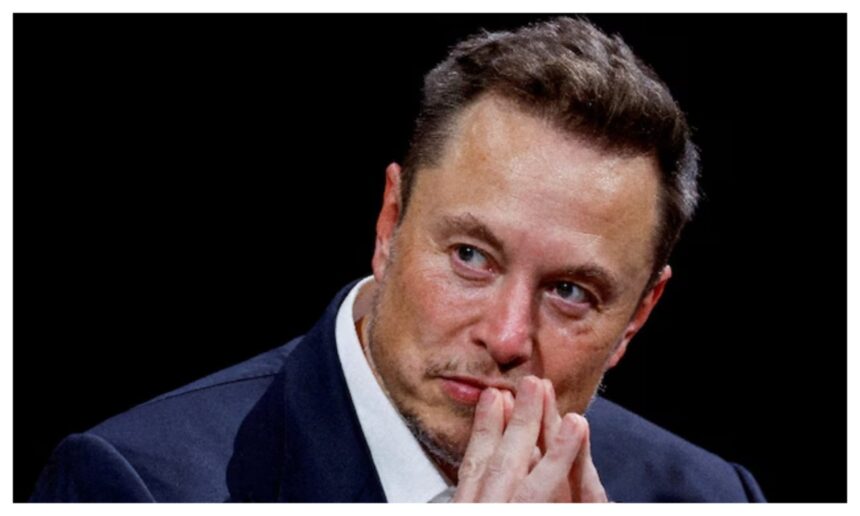The SEC Lawsuit Against Elon Musk: A Comprehensive Examination
In recent weeks, the tech world has been buzzing with news of the U.S. Securities and Exchange Commission (SEC) suing Elon Musk, the billionaire tech magnate, accusing him of failing to disclose in a timely manner his acquisition of more than 5% of Twitter’s shares in early 2022. This legal action has brought attention to the complex interplay between financial regulations, corporate governance, and high-profile public figures in the tech industry. Musk’s acquisition of Twitter and subsequent actions have caused a ripple effect not only in the financial world but also in global political, economic, and technological spheres. This detailed analysis aims to unpack the details of the lawsuit, its historical context, legal implications, and the broader narrative of Elon Musk’s career and influence.
The SEC and Its Role in Corporate Oversight
The SEC is the primary U.S. government agency responsible for regulating the securities industry. Its mandate includes protecting investors, maintaining fair and efficient markets, and facilitating capital formation. The SEC enforces various securities laws, including the Securities Exchange Act of 1934, which requires that anyone acquiring more than 5% of a publicly traded company disclose their ownership in a timely manner. These rules are designed to ensure transparency in the financial markets, allowing investors and other stakeholders to make informed decisions based on accurate and up-to-date information.
In Musk’s case, the SEC alleges that he failed to follow these rules by not disclosing his acquisition of a 5% stake in Twitter within the prescribed 10-day period. The SEC’s investigation and lawsuit underscore the importance of these regulations and their enforcement in maintaining integrity within the stock market.
Musk’s Relationship with the SEC: A History of Tension
Elon Musk’s relationship with the SEC has been notably fraught. Musk has frequently clashed with the agency, particularly in relation to his social media activity and the impact it has had on Tesla’s stock price. The most infamous example of this conflict occurred in 2018, when Musk tweeted that he had secured funding to take Tesla private at $420 per share. The tweet sent Tesla’s stock soaring, but it was later revealed that Musk had not actually secured funding, leading to an SEC investigation.
The SEC charged Musk with securities fraud, alleging that his tweet misled investors. Musk and Tesla settled with the SEC, agreeing to pay $40 million in fines. Musk was also forced to step down as Tesla’s chairman for a period and agreed to have his communications regarding Tesla reviewed by a company lawyer. However, this settlement did not end the tension between Musk and the SEC. Musk’s frequent, sometimes controversial, tweets and his confrontational stance towards the agency have kept him in the SEC’s crosshairs ever since.
Musk’s Acquisition of Twitter: The Road to the $44 Billion Deal
Musk’s involvement with Twitter began in early 2022, when he started buying shares of the social media platform. At the time, Musk was already known for his outspoken criticism of Twitter and its content moderation policies. In fact, Musk’s complaints about Twitter’s censorship practices and his desire to promote free speech were central themes in his eventual decision to buy the company.
In early 2022, Musk began accumulating Twitter shares, eventually surpassing the 5% threshold in March of that year. As per U.S. securities law, once an individual or entity acquires more than 5% of a company’s shares, they must file a Schedule 13D form with the SEC within 10 days. This form is intended to disclose the buyer’s intentions and provide details on their ownership stake. However, Musk failed to file the required disclosure form within the 10-day window.
On April 4, 2022, after Musk had already acquired 9% of Twitter’s stock, he disclosed his stake to the public. This delay in disclosure is at the heart of the SEC’s lawsuit, as it alleges that Musk’s failure to comply with the rules caused market distortion and potentially harmed other investors.
The SEC’s Allegations: Market Distortion and Financial Losses
The SEC’s lawsuit against Musk centers around the idea that his delayed disclosure of his ownership stake in Twitter led to financial harm. According to the SEC’s filing, Musk’s failure to disclose his ownership within the required time frame resulted in a significant jump in Twitter’s stock price. After Musk publicly revealed his 9% stake, Twitter’s share price surged by 27%, signaling investor excitement about Musk’s involvement in the company.
The SEC argues that this delay in disclosure allowed Musk to acquire Twitter shares at a lower price, effectively “underpaying” by at least $150 million for his stock purchases. By not disclosing his stake in a timely manner, Musk was able to purchase additional shares without the market reacting to the news of his growing stake. This allowed him to secure a larger ownership position at a cheaper price, ultimately benefiting him at the expense of other investors who sold their shares during this period.
The lawsuit also alleges that shareholders who sold their shares to Musk during this time suffered financial losses. If they had known about Musk’s growing stake in the company, they may have been able to sell their shares at a higher price, capitalizing on the increased market value following Musk’s eventual disclosure.
Musk’s Defense: No Wrongdoing and SEC Harassment
Musk’s legal team, led by attorney Alex Spiro, has strongly rejected the SEC’s allegations, insisting that Musk did nothing wrong. Spiro has argued that Musk’s delayed disclosure did not harm investors or distort the market in any meaningful way. In fact, Spiro maintains that Musk’s actions were consistent with standard industry practices and that the SEC’s lawsuit is part of a larger, ongoing campaign of harassment against the billionaire.
In a statement to Bloomberg, Spiro described the SEC’s actions as part of a “multi-year campaign of harassment” against Musk, citing the agency’s previous legal battles with Musk over his tweets and Tesla-related communications. Spiro’s defense also points to the fact that Musk eventually disclosed his Twitter stake, and that the delay in filing the Schedule 13D form did not result in any long-term harm to investors.
While Musk’s defense is rooted in the argument that his actions were not malicious, it raises questions about the broader regulatory landscape for high-profile investors and CEOs. Musk’s wealth, influence, and social media presence have made him a target for scrutiny, but his defenders argue that he has been unfairly treated by regulators who are eager to make an example out of him.
The Political Context: Implications of a Presidential Transition
The timing of the SEC’s lawsuit against Musk is particularly significant, as it coincides with the impending transition to a new presidential administration in the United States. On January 20, 2025, Donald Trump will be sworn in as the next U.S. president, following the results of the 2024 election. Trump has a long-standing relationship with Musk, with the tech billionaire being one of the most vocal and prominent supporters of the former president.
Musk and Trump have shared a mutually beneficial relationship, with Musk receiving favorable treatment from Trump’s administration during his first term. This connection has raised questions about how the SEC lawsuit will proceed under a new administration, especially given the potential shift in leadership at the SEC itself. Gary Gensler, the current chairman of the SEC, has already announced his resignation, paving the way for a new leader to take the helm of the agency.
With the change in leadership at the SEC and the incoming Trump administration, it remains unclear how the legal case against Musk will unfold. Some analysts suggest that Musk’s close relationship with Trump could influence the trajectory of the lawsuit, particularly if the new administration adopts a more lenient stance toward Musk and other corporate figures.
Musk’s Twitter Acquisition and Its Aftermath: A Tech Industry Shake-Up
Elon Musk’s acquisition of Twitter in October 2022 for $44 billion marked a significant moment in the tech world. Musk’s takeover of the platform was framed as an effort to promote free speech and reshape the social media landscape. Upon completing the acquisition, Musk swiftly made a series of changes to the platform, including laying off thousands of employees, altering content moderation policies, and rebranding the platform as “X.”
While Musk’s purchase of Twitter was a bold move, it was not without controversy. Critics argued that Musk’s vision for the platform would exacerbate issues related to misinformation, hate speech, and the concentration of power in the hands of a few tech giants. Supporters, on the other hand, lauded Musk’s commitment to preserving free speech and challenging the status quo of Silicon Valley.
The rebranding of Twitter to X was seen as a symbolic step in Musk’s broader ambition to create an “everything app,” similar to China’s WeChat, that would combine social media, financial services, and other digital services under one umbrella. However, the transition has not been without challenges, as Musk has struggled to regain Twitter’s user base and stabilize the company’s financial performance.
Musk’s involvement with Twitter, combined with his legal troubles and controversial actions, has further complicated his public image. While he remains one of the most influential figures in technology and business, his tenure as Twitter’s owner has been marked by significant turbulence, both within the company and in the public discourse.
Broader Implications: The Power of High-Profile Investors
The SEC’s lawsuit against Musk also raises important questions about the role of high-profile investors in corporate governance and market transparency. Musk is not only one of the wealthiest individuals in the world but also one of the most visible, thanks to his status as CEO of Tesla, SpaceX, and now X. His influence on the stock market and public opinion is immense, and his actions often have far-reaching consequences.
The case underscores the importance of adhering to securities laws, even for individuals with significant power and influence. While Musk’s defenders argue that his actions did not harm investors, the SEC’s lawsuit highlights the need for consistent enforcement of financial regulations to maintain market integrity and protect the interests of all stakeholders.
At the same time, Musk’s legal battles serve as a reminder of the complex relationship between regulation, innovation, and the concentration of wealth in the tech industry. As technology companies continue to grow in size and influence, the role of regulators in overseeing these companies and ensuring fairness in the market will only become more critical.
Conclusion: The Road Ahead for Musk and the SEC
The lawsuit filed by the SEC against Elon Musk is just one chapter in the ongoing saga of the tech billionaire’s career. With Musk’s continued involvement in high-profile ventures, including his leadership of Tesla, SpaceX, and X, the legal and regulatory scrutiny surrounding his actions is likely to intensify. Whether Musk’s defense will hold up in court remains to be seen, but the broader implications of this case will reverberate throughout the business world for years to come.
As the lawsuit progresses, all eyes will be on how Musk navigates this latest challenge and how it intersects with the changing political landscape in the United States. The outcome of the case could have significant consequences not only for Musk personally but also for the future of corporate governance and regulatory oversight in the tech industry. Whether Musk’s reputation will be permanently tarnished by these legal battles or whether he will emerge victorious remains to be seen, but his influence on the tech world is undeniable, and his legal troubles are far from over.




